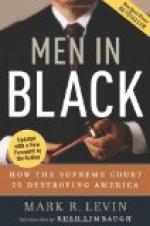The complaint of the lawyer against the judge is always that he has forgotten that he was a lawyer once himself. He does not realize how important it is that the lawyer should make a good impression on his client. His feeling is, if the judge cuts him off when he is arguing, the client will think that he is talking foolishly. The judge overrules his objection. The client thinks the judge does not like him. The judge denies his motion to strike out, he evidently does not look on the lawyer favorably. The lawyer’s chance of display is in talking. If he is not allowed to go on he feels the judge is unreasonable in not listening to him.
The nice lines to be made by the judge between consideration for the feeling of the lawyers and insisting that justice be fully and speedily accomplished, are hard to draw. On the one hand there are the courts where no limit is put to the digressions of attorneys and where they may wander on and on, apparently merely to display their oratory to their clients, and other courts where the undoubtedly bad manners of the bench to the bar are unforgivable.
Control of the trial is necessary because it is a struggle in a court on a defined area. It is an intellectual ordeal by battle, a capping of intellects. It is like a game of chess in which luck is eliminated, the board is free, the pieces are equal, the way in which they may move is fixed by the rules of the game of court procedure. The element of chance is made not by the court or the procedure, but by the fact that the pawns, the castles, and the knights are not of ivory, but are human and mutable.
The lawyers are discontented with the courts, while the judges feel that the deficiencies are the fault of the lawyers. The lawyers, they say, do not cooeperate with the judges in the administration of justice, and are too busy with their own game. Here enters that academic question of whether a lawyer’s duty is first to the court and justice, or first to his client,—should he defend a man he knows to be guilty. The dispute is sophomoric. He is the advocate of his client first, foremost, and all the time. That is the reason for his existence. He is the agent for his client; his tongue, brain, and energy belong to his client. He is undoubtedly justified in whatever he does, if he keeps to the rules. Justice is best promoted by heeding the rules of justice to the utmost.
It is to be remembered that the lawyer occupies an uncertain position. As an officer of the court he is sworn to promote justice; as a champion in the battle he is under the deep obligation of performing his utmost for his client. At times the conflict between his duties seems real. As an officer of the court he has the privilege of the floor. He can be heard and is admitted to the court. It is as though he had joined a club in which dueling or gaming is permitted. The obligation resting upon him is to act as a gentleman and obey the rules and not to cheat. If he keeps to the rules he is presumably a gentleman and can do what he pleases for his clients.




